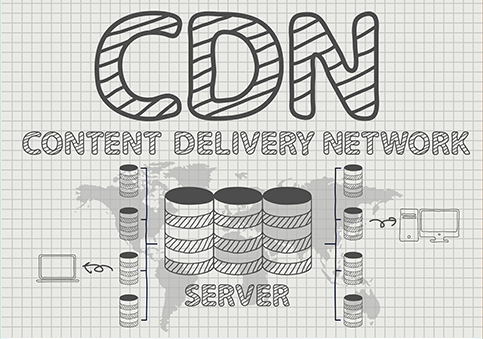What CDN is a site using?

How Can You Tell If A Website Is Using a CDN?
They say curiosity killed the cat. But when you’re an entrepreneur, being curious can lead to great things. Content Delivery Networks (CDN) have gone a long way in the digital world. Thousands of websites enjoy efficient content delivery and speed because of the power of CDNs. Now, if you’re a competitive business leader, a good question you might ask yourself is: what CDN is a site using? Or better yet, which CDN providers is my strongest competitor partnering with?
There are two techniques available to find out what CDN is a site using? So, choose the right one and can efficiently recognize Which CDN is used in a Website? They are checking with internet tools and checking manually.
2 Ways to Find Which CDN is Used in a Website
1, Check with internet
Perhaps the oldest trick in the book is checking online. There is a wide array of websites you can visit to check what CDN other sites are using. These sites often ask for only the site’s domain name you’re looking for and you’re presented their CDN provider after only one click.
A good example of this is CDNPlanet’s finder tool. If the site you want to check uses the multi-CDN strategy, What’s my CDN services is a better option for you. This helps you determine which CDN a country or region is using. For those who don’t know, the multi-CDN tactic works best given that some CDN providers function better than others in some parts of the world.
2, Check Manually
If, for whatever reason, you don’t find what you’re looking for with the first option, do it manually. It may require a little more effort, but if you do it right, you should be able to find a site’s CDN.
The first thing you’ll need to look for a site’s CDN manually is to find out the IP address of the domain you’re looking for. You can use DNS Watch or DNS record lookup to get that.
The second thing you’ll need is to determine who the IP owner is. You should be able to do that with the internet using either of these tools: IP lookup or UltraTools. That will then lead you to the CDN provider you’re looking for.
What Is a CDN and How Does a CDN work?
If the first thing you tried finding out is the CDN your close competitors are using, but aren’t sure of it yourself yet, It could already be time to consider investing in one. CDNs are a bunch of servers scattered in different parts of the globe. This technology is utilized to better transmit your site’s content to your international audience. This reduces the physical distance your users make when they attempt to access your site.
CDNs have also been proven to deliver a ton of benefits, two of which are speed and better ROI. When your website loads faster, your site visitors are most likely to stay longer. It also helps create a better digital experience for them. Other studies have also noted how CDNs have drastically improved their ROI. This is especially true for those who sell products and services through their websites.
Think about it: the clearer and faster your pictures load, the more chances your customers get to click on various product variants. Amazon is a terrific example of a site who thrives with CDN.
How to Speed Up Website with a CDN?
Like many things in the digital world, not every tool is meant for every business. CDN may be one of them. CDN is best for sites that enjoy medium to heavy traffic. It’s also great for websites that enjoy a steady foreign following. It doesn’t matter if their visitors are a thousand miles away from your hometown or are just from a neighboring country, CDNs reduce latency making it perfect for your growing site.
What Industry Does CDN Benefit the Most?
- Media
- E-Commerce
1, Media
websites that publish blog posts and articles almost every hour should consider CDNs. Take BuzzFeed for example. Because their main purpose is to deliver content fresh and as they happen, it’s their obligation to their readers to deliver content quickly. It’s also safe to say that their audience is global. If their site is hosted by an organ host that’s California-based, you can already be sure that their visitors from India won’t experience the same smooth-flowing encounter those from Las Vegas do. This is why CDNs are handy to media websites.
2, E-commerce
As mentioned several times in the article, selling things online can be a different struggle as your customers don’t see in actuality what you have to offer. In this case, photos of your products and services have to be vivid for them to successfully and accurately picture out what they’re purchasing. Websites like Wish, Amazon, and eBay, all know how important CDNs are to reach their market.
Interested in seeing what BelugaCDN can do for your company? Get a free trial and find out for yourself
Power-up your Content Delivery
30 Day Free Trial Cancel Anytime